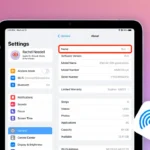Salary benchmarking is concerned with the question: “How much does an employer pay for a specific job?”Comparing job descriptions with similar ones within their industry allows businesses and organizations to determine the ideal remuneration package to offer. Without this, people might start complaining about why one job earns more than the other when they’re in the same position and industry. This practice is so vital that one expert says it “decides the fate of a company.” As such, there’s consistent demand and expertise relevant to a salary benchmarking tool, such as surveys and analytics. There are many reasons businesses should use it, most of which are hard to miss.
1. Salaries Influence Employee Retention
You know how most resignation letters indicate the reason for leaving the company being “to pursue new opportunities?” That new opportunity often involves finding a similar but higher-paying job in another company—a rival, no less.
The average company experiences an estimated 18% turnover rate, with the majority of the cases being voluntary. People leave an employer for several reasons, inadequate remuneration is a big factor. Statistics show that people who switch jobs earn on average 5.2% more, a small figure that can grow big enough to hurt your bottom line with the turnover rate.
By employing tools such as a salary benchmarking survey, employers can get the necessary data and adjust salaries to match—if not, best—the competition. It determines a slew of salary details, such as base pay, overtime pay, and benefits. Keeping the rates in line with the industry prevents a company from losing its best hands.
2. Good Salaries Attract Skilled Potential

Speaking of best hands, salary benchmarking enables employers to offer pay packages that entice more people to work for them. Whether fresh out of college or an inadequately-paying job, they can’t resist a massive payoff from a job description that matches their skillset.
One study in 2018 had 450 subjects peruse a sample job description and highlight the parts that they found helpful. Most of them focused on the salary range, information that many employers are hesitant to reveal (mainly to keep the competition guessing). Qualifications and job details came in a distant second.
More experts are urging employers to reveal salary information in their job postings, which they believe is a win-win situation. People will be encouraged to apply if it meets their needs, while employers can find the most skilled candidates for their line of business. This is only possible if your company has actionable data, which salary benchmarking tools can provide.
3. Proper Wages Lower Costs
Sometimes, businesses hesitate to add more hands to their workforce because of the cost. A 2016 report from the Society of Human Resource Management (SHRM) estimates the cost per hire at USD$4,129 (GBP£3,007). In addition, it can take around 12 weeks for employers to “break even” or get their money’s worth in hiring and training a new employee.
It’s worth noting that salary benchmarking is all about paying a reasonable salary, whether it means increasing or decreasing it. This is especially important to small businesses that must exercise greater care in spending their limited capital. The data collected from benchmarking allows employers to challenge salary data if they deem it too high.
Existing tech such as artificial intelligence can make a salary benchmarking tool more accurate, putting employers in a better position to question the data. One example presented during the 2018 Institute of Electrical and Electronics Engineers (IEEE) International Conference on Data Mining features a model that predicts missing salary data by determining similarities between companies, jobs, and time factors.
4. There Are Laws to Follow

Many countries have laws that protect job seekers and current employees from unfair recruitment and employment practices. Arguably the most important of these is the national hourly minimum wage rate. In the U.K., for example, the current rate stands at GBP£8.91 (for aged 23 and above, the rate is lower for younger ones).
Most employment laws guarantee the employee’s right to inquiry if they realize they’re being paid below the minimum wage. Employers can find themselves on the penalizing end of legal sanctions if they can’t justify paying their people at the incorrect rate.
Salary benchmarking ensures compliance because the data gathered and assessed largely comes from compliant businesses and organizations in the industry. Aside from the minimum hourly wage, it also covers offering compliant compensation packages.
Conclusion
These reasons can’t state enough the importance of salary benchmarking. It helps businesses and organizations maintain a positive corporate image by offering adequate remuneration backed by industry and geographical data. In a way, it contributes to achieving salary equality.
Explore Further:









